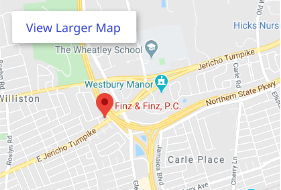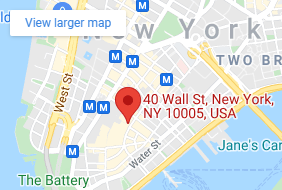$8,400,000 Settlement
Our client’s child, at the age of six months old, was admitted to a New York City hospital for the removal of a non-malignant teratoma (non-cancerous tumor). In order to perform the surgery, an endotracheal breathing tube was to be inserted. Our client’s child had an upper respiratory infection (URI) that was improving in the days leading up to the surgery, but shortly before the operation, a negative trend in the URI was reflected in pre-operative laboratory results.
Irrespective of these findings, the hospital staff decided to perform the surgery on schedule. During the operation, our client’s child went into cardiac arrest. This little six-month-old girl also suffered thrombosis (blood clotted veins) resulting in necrosis (death of tissue) of part of her digestive tract, causing a condition known as Short Gut Syndrome. This condition hinders the body’s ability to absorb nutrients from food and in many cases (as in this case) requires supplemental feeding through a gastrostomy tube (G-tube) to make up for the nutritional deficiencies.
Our law firm was engaged by the young child’s mother to investigate the medical circumstances surrounding the injuries sustained by her daughter. The case was accepted by our firm and litigation was commenced. During the litigation process, our firm engaged world-renowned medical experts in the fields of Pediatric Hematology, Pediatric Surgery, Critical Care, Pediatric Gastroenterology, Pediatric Neuroradiology, Pediatric Neurology and Neuropsychology. In addition, a Vocational Expert, Life Care Planner and Forensic Economist were brought on board to round out our powerhouse trial team. Together, it was determined that the cause of this child’s complications and resulting damages were preventable.
Our law firm alleged that when an endotracheal tube is utilized during surgery, it is critically important that the patient does not have a URI, since this type of infection can produce mucous resulting in mucous plugs that obstruct the airway and reduce the flow of oxygen to the patient through the endotracheal tube. It was further alleged that this in fact occurred. The result, we argued, caused cardiac arrest and the slowing of the arterial flow, which in combination with a general susceptibility to thrombosis during surgery, caused the thrombotic condition. In addition, we advanced the theory that a post-operative negative trend in the laboratory results should have alerted the hospital staff to the thrombosis. The failure of the hospital staff to appreciate the negative trend and timely treat this condition with anti-coagulation medication resulted in the necrosis and Short Gut Syndrome.
Since removal of the benign teratoma was a non-emergent elective procedure, we advanced a strong claim against that the hospital should have simply rescheduled the surgery for two weeks later, so that the child’s URI could completely resolve prior to the insertion of the endotracheal tube. The failure of the hospital to take this basic measure resulted in this unfortunate and preventable medical domino effect.
After several years of hard-fought litigation, and a full year of settlement negotiations, the case settled for $8.4 million. This substantial settlement will provide lifetime financial security and medical care to this young deserving child.




























